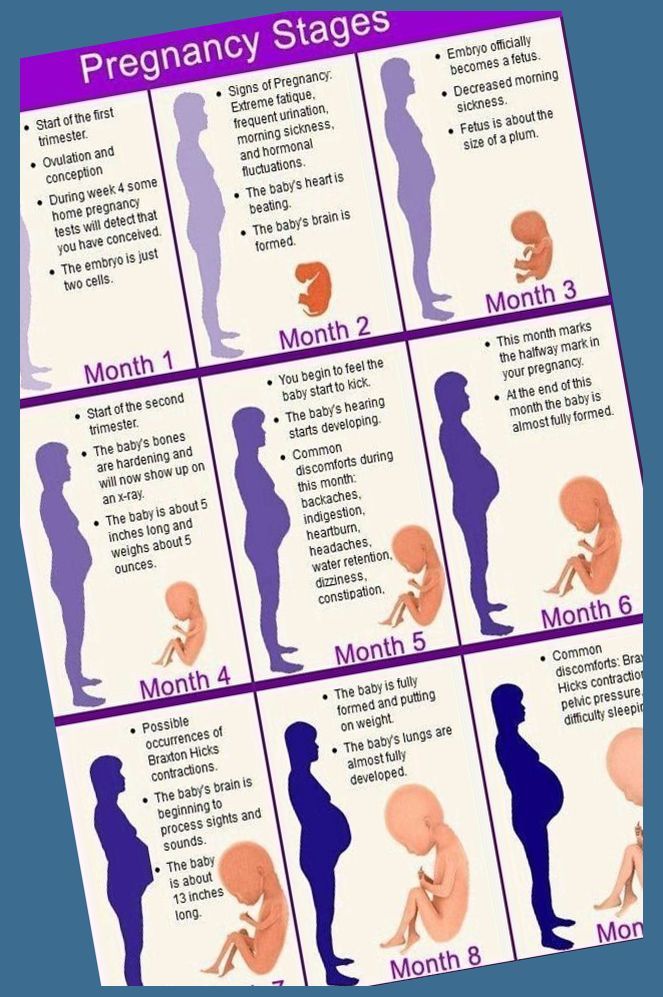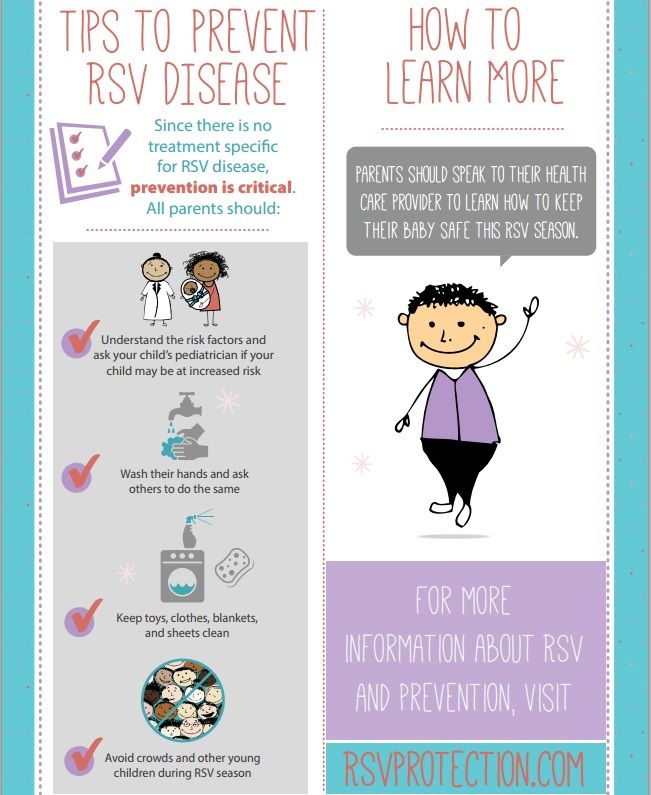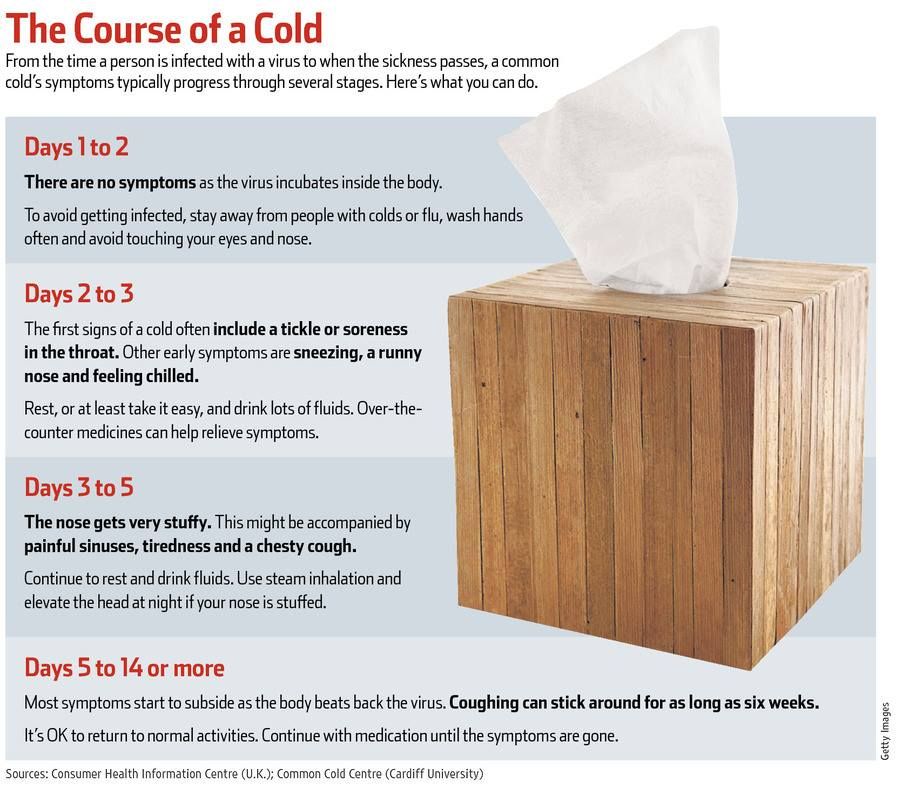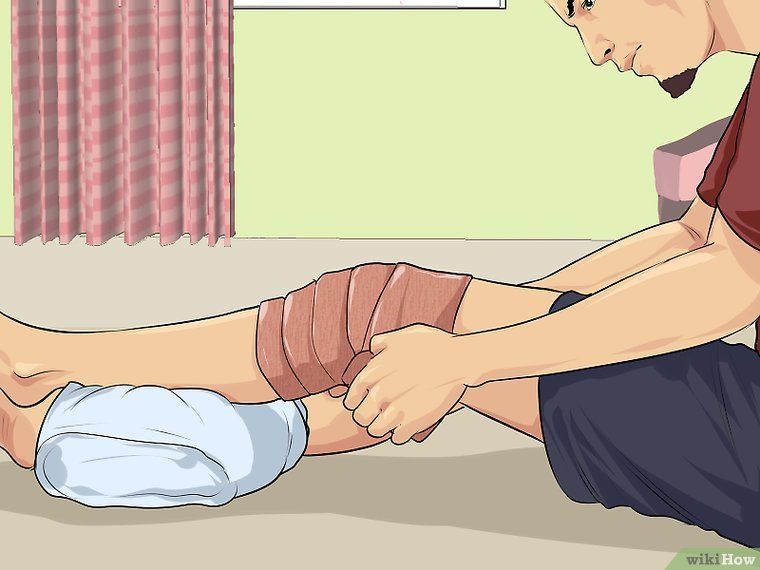Most common early pregnancy symptom
16 early signs of pregnancy
You’ve got one question on your mind: Could I be pregnant?
A pregnancy test is the only way to know for sure. But if it’s too early to take a test, you may be on the lookout for early signs – or maybe you think you’re already experiencing some early pregnancy symptoms.
Is it too early to tell if you’re pregnant? What symptoms may be the earliest signs of pregnancy? Below, we answer those questions and more.
How early can you tell if you’re pregnant?
Again, you’ll need to take a pregnancy test at the right time to confirm your hopes or suspicions. But when it comes to the first symptoms of pregnancy, everyone is different. Some people start to notice changes within a week after conception. Others might not notice anything until they miss their period.
When should you take a pregnancy test?
It’s usually recommended that you take a pregnancy test after you’ve missed your period. This is because pregnancy tests measure the level of human chorionic gonadotrophin (hCG) in your body, which is a hormone that starts to build up when you conceive. It can take around three to four weeks from the first day of your last period for there to be enough hCG in your body to show up on a test.
What are the first symptoms of pregnancy?
The most common sign of early pregnancy? A missed period.
Your menstrual cycle is your body’s way of preparing for a possible pregnancy each month. Part of that is the thickening of your uterine lining, which is where a fertilized egg would implant to begin a pregnancy.
If you’re not pregnant, your period is how your uterus sheds that extra lining. If you are pregnant, that lining stays put and you don’t get your normal flow. This is why a missed period is often the earliest sign of pregnancy.
Of course, a delayed or missed period doesn’t always mean you’re pregnant. If your body is under a lot of stress or you have a hormonal imbalance, you could be experiencing an irregular menstrual cycle.
What other symptoms can be early signs of pregnancy?
Every person – and every pregnancy – is different.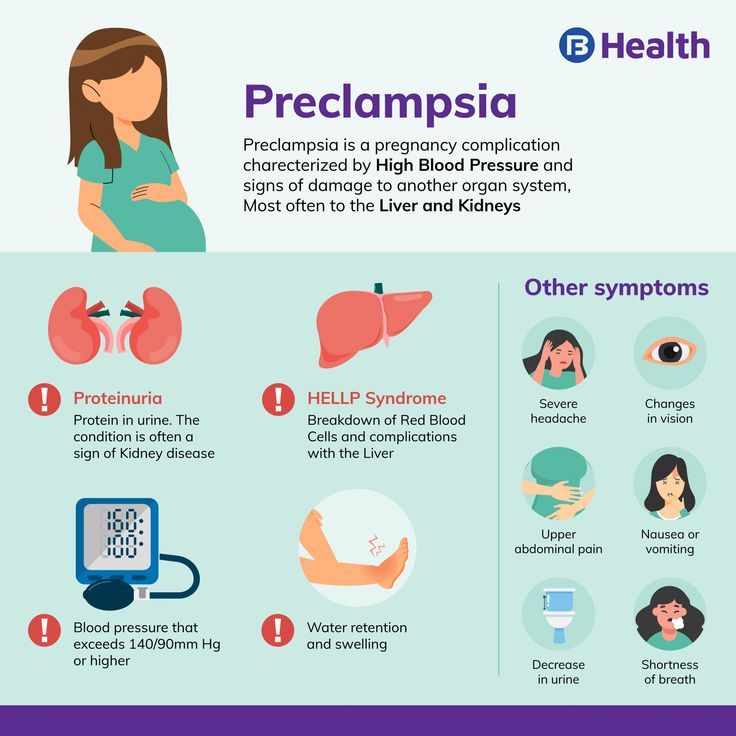 So, if you are pregnant, you’ll likely experience a unique combination of common, not-so-common and sometimes overlapping symptoms. And, they may show up earlier or later than expected. Here are more than a dozen possible symptoms of early pregnancy.
So, if you are pregnant, you’ll likely experience a unique combination of common, not-so-common and sometimes overlapping symptoms. And, they may show up earlier or later than expected. Here are more than a dozen possible symptoms of early pregnancy.
1. Spotting or light bleeding
Many women are surprised to learn that spotting or light bleeding can be an early sign of pregnancy, but about one-third of women experience it. This is often called implantation bleeding because doctors believe it occurs as the fertilized egg attaches (or implants) itself into the uterine lining. This is different from bleeding that could occur from something like a miscarriage – which is usually heavier.
When does implantation bleeding occur?
Implantation bleeding typically occurs 10 to 14 days after conception, which is just before or right around the time your period is due. So, you may think you’ve gotten your period.
But implantation bleeding is a light flow, which may start and stop over a couple days. And while it can take on a range of colors, it’s more likely to be pink, brown or light red.
And while it can take on a range of colors, it’s more likely to be pink, brown or light red.
Your period, on the other hand, may start off light in flow and in color but after a couple days becomes heavier, changes to a crimson red color and lasts up to a week or so.
2. Lower abdominal pain or cramping
While cramps and lower-abdominal pain can signal a coming period, they can also be a sign of egg implantation.
What do implantation cramps feel like?
Implantation cramps can occur with or without spotting or bleeding, and may feel different from period cramps. For example, you might feel mild to moderate prickling, pulling or tingling that comes and goes over a few days.
But menstrual cramps can often feel like a throbbing or dull ache, and typically start a day or two before your period.
3. Higher basal body temperature
If you’ve been tracking your basal body temperature (BBT) to increase your chances of getting pregnant, you probably know that your BBT goes up slightly right after ovulation.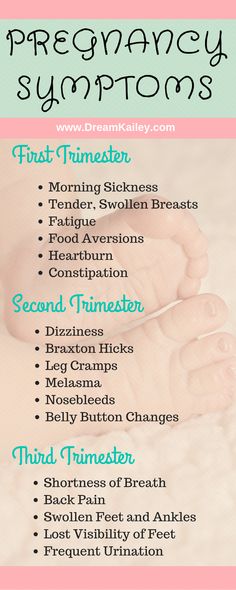 If you’re pregnant, your temperature may remain elevated rather than dipping back down.
If you’re pregnant, your temperature may remain elevated rather than dipping back down.
Of course, you could be running hot for other reasons, but if it lasts more than a few weeks, pregnancy may be the explanation.
4. Changes in cervical mucus
If you’ve already been checking your cervical mucus to figure out when you’re most fertile, here’s a reason to continue: In the first few weeks of pregnancy, the amount of cervical discharge may increase and become stickier and whiter.
5. Breast tenderness, swelling or tingling
When you’re pregnant, your body experiences big changes in hormones – specifically, increases in estrogen and progesterone – to support your growing baby. This change in hormones can contribute to many symptoms, including breast tenderness.
Oftentimes, increased breast tenderness, swelling or tingling start to become noticeable a few days before a missed period.
If you usually experience breast tenderness leading up to your period or shortly after it begins, pregnancy-related breast tenderness and swelling will likely be more intense than you’re used to and stick around. You may also experience nipple soreness.
You may also experience nipple soreness.
6. Fatigue
Fatigue in early pregnancy is common, and some women might notice it before they know they’re pregnant. In fact, fatigue may set in as soon as one week after conception. This is thanks to those sudden changes in hormone levels, particularly increasing progesterone.
7. Frequent urination
If you’re making more trips to the bathroom than usual around the time your next period is due, it may be a sign of pregnancy.
Certainly, your drinking habits play a big role in how many times you pee in a day. However, pregnancy increases the amount of blood in your body, which gives your kidneys more fluid to filter and more waste to get rid of.
So if you’re pregnant, you may notice you’re peeing a lot more – a symptom that can start early on and (unfortunately) last throughout your pregnancy.
8. Nausea or vomiting
Morning sickness might be the most well-known of all pregnancy symptoms, taking the form of food aversion or nausea, and even vomiting for some. This symptom can set in as early as two weeks after conception, which is around the fourth week of pregnancy and right around the time you’d miss your period if you were pregnant.
This symptom can set in as early as two weeks after conception, which is around the fourth week of pregnancy and right around the time you’d miss your period if you were pregnant.
But some may not experience nausea or vomiting at all. And despite its name, morning sickness can actually happen at any time of the day or night.
9. Darkening areolas
When you’re pregnant, your areolas (the areas round your nipples) will likely grow and darken. Usually, these changes are gradual and continue throughout pregnancy. However, some women notice these changes really early on in combination with other symptoms.
10. Bloating or constipation
We all experience bloating or constipation from time to time, but both are quite common during pregnancy. Once again, those changing hormones are the culprit. They slow down digestion, which can cause a buildup of air in the gut and lead to constipation.
Early on, bloating or constipation may be mild and accompanied with other pregnancy symptoms. But – as a heads up – if you really are pregnant, these symptoms may stick around throughout your whole pregnancy.
But – as a heads up – if you really are pregnant, these symptoms may stick around throughout your whole pregnancy.
11. Metallic taste in your mouth
Many women report a metallic taste in their mouth during pregnancy. Once again, hormones are to blame – specifically, estrogen.
Typically, this symptom (as well as changes in taste overall) is common in the first trimester but may occur at other times too – including before a missed period.
12. Sensitivity to smell
Many women report that sensitivity to smell was one of their first signs of pregnancy. In fact, as many as two-thirds of women become more sensitive or reactive to the smells around them during pregnancy.
And oftentimes, this heightened sense of smell can stick around through the first trimester or beyond, and contribute to other symptoms such as nausea, and food cravings or aversions.
13. Mood changes
From a stressful day at work to the natural wonders of your menstrual cycle, there are a lot of things that can affect your mood.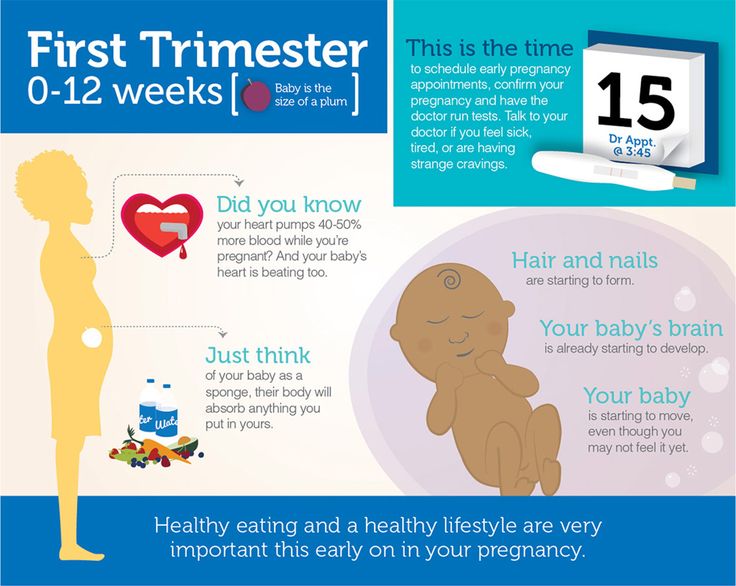 But changes in mood are very common during pregnancy – and they may be especially noticeable early on as your body gets a sudden burst of estrogen and progesterone.
But changes in mood are very common during pregnancy – and they may be especially noticeable early on as your body gets a sudden burst of estrogen and progesterone.
If you are pregnant, any mood changes you’re experiencing are likely coupled with other symptoms such as fatigue or nausea. You may feel more sensitive or weepy. Or perhaps your fuse is a little shorter and you’re more easily annoyed.
14. Headaches
Headaches are a part of life. They come with colds and allergies. They come with stress or fatigue, or when you cut down on caffeine to help prepare your body for pregnancy. But they can also come with pregnancy.
Headaches can happen thanks to the increasing blood volume and hormonal changes that occur in early pregnancy. You can also get headaches if you’re dehydrated as a result of nausea.
15. Dizziness
As blood flow increases during pregnancy, blood pressure can also decrease and lead to dizzy spells. Usually, dizziness is more of a second trimester symptom, but some women may notice it very early on, too.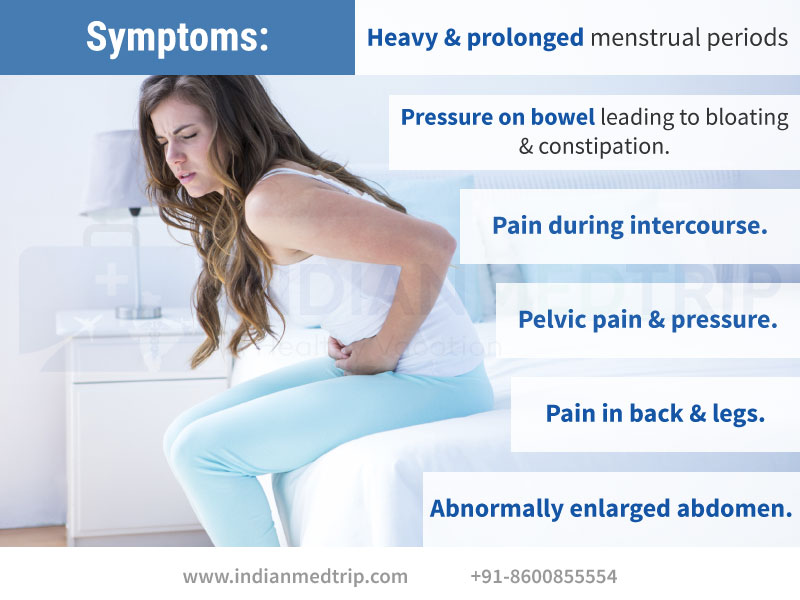
16. Nasal congestion
A lot of people are shocked to learn that nasal congestion can be a pregnancy symptom. You may wonder if you’re coming down with something or your allergies are acting up. But if you’re noticing a stuffy or runny nose along with other pregnancy signs, you might be taking a pregnancy test in the near future.
The mucous membranes in the nose are also affected by hormones and increased blood flow throughout your body. This can cause blood vessels to swell, resulting in congestion and even sneezing.
Could you have early pregnancy symptoms and not be pregnant?
Yes. As we’ve mentioned, many early pregnancy symptoms can overlap with symptoms of other conditions, especially premenstrual symptoms. So, the best way to know if the symptoms you’re experiencing are pregnancy related is to try to relax and patiently wait until it’s time to take a pregnancy test.
When should you see a doctor about a new pregnancy?
If you’ve taken a pregnancy test and it’s positive, go ahead and make your first prenatal visit right away.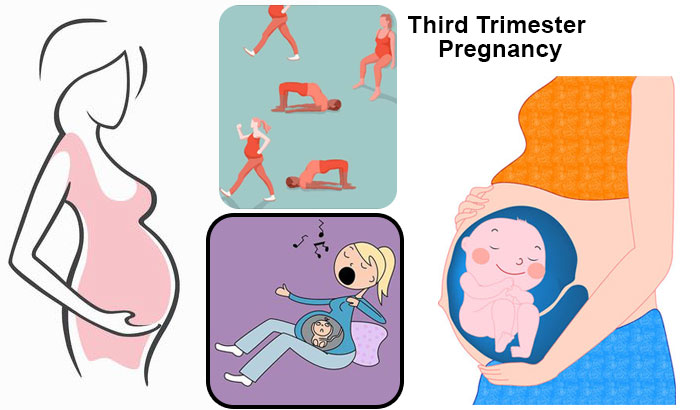 This is also a great time to start looking into educational resources like the myHealthyPregnancy app.
This is also a great time to start looking into educational resources like the myHealthyPregnancy app.
At the first prenatal visit, you’ll get a physical exam and other tests to make sure everything is looking healthy, and you’ll learn about the rest of your prenatal appointment schedule. You’ll also get to talk through any expectations and questions you have, such as which foods to eat and avoid while pregnant.
When are you most fertile? Learn to identify when you ovulate
If you’re trying to get pregnant, one of the most important ways to increase your chances of conception is to understand when your most fertile days occur during your menstrual cycle. But what’s the best way to figure that out?
It all starts with understanding the fertility basics, especially when it comes to what fertility is and how ovulation plays a role. There are signs you can watch for and tools you can use to narrow down your most fertile days so you can plan your baby-making sessions to match.
Read on to learn more about fertility and ovulation, and how understanding both can help increase your odds of conceiving.
The basics: Understanding fertility and ovulation
What is fertility?
When we say “fertility” we mean your body’s ability to conceive.
What is the fertile window?
Your fertile window is the time during your cycle when your chances of conceiving are at their highest.
When is the fertile window?
Your fertile window occurs midway through your cycle.
The length of your menstrual cycle helps determine the length and timing of your fertile window. Your period marks the first day of your cycle – the average cycle length is 28 days, but it can range from 21 to 35 days. So, depending on your cycle, your fertile window can be anywhere from six to 10 days in length.
What is ovulation?
Ovulation is the release of a mature egg from your ovary.
When does ovulation occur?
Ovulation happens during your fertile window and it starts the clock on your “ovulation window”, which is the roughly 24- to 72-hour time period when egg fertilization can occur.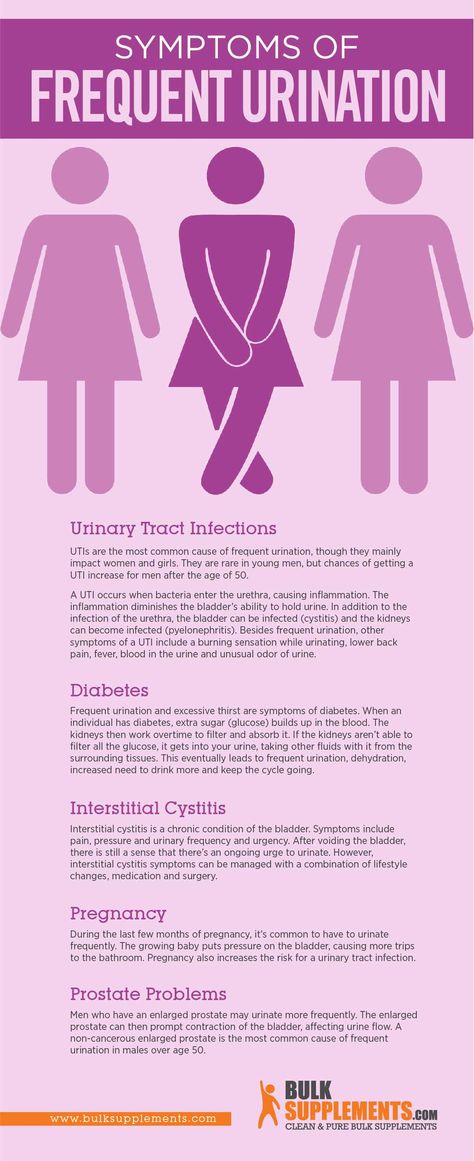
So, how many days after your period is ovulation? Depending on your cycle, ovulation may occur between six and 20 days after your period starts.
How many days do you ovulate?
A normal ovulation cycle lasts about 24 hours each month. Once an egg is released it’s viable for fertilization for about 12 to 24 hours.
How do you know when you’re ovulating?
The best way to know when you’re ovulating is to take steps to pinpoint your fertile and ovulation windows, which we’ll get to in the next section. But you may also experience one or more of the following ovulation symptoms:
- Heightened sense of smell
- Breast soreness and tenderness
- Mild cramping
- Light spotting or discharge
- Increased sex drive
- Changes in the position and firmness of your cervix
- During ovulation, your cervix rises to the top of your vagina and becomes softer and moister. This makes it easier for sperm to travel through your cervix and into your uterus.
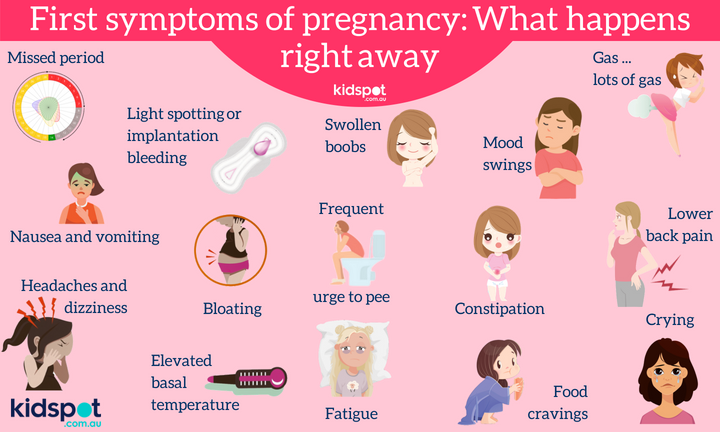
Identifying your fertile window and ovulation window
While an egg needs to be fertilized within 12 to 24 hours of its release, sperm can live for up to five days within your reproductive tract. That’s why identifying your fertile and ovulation windows is so important. Knowing this information can help you and your partner time sex for when your chances of getting pregnant are highest.
Step 1: Track your menstrual cycle to understand what’s normal for you
Your menstrual cycle – and the symptoms you experience throughout it – are unique to you. So, if you’re preparing for pregnancy, getting familiar with your cycle and identifying any patterns are super important for figuring out your most fertile days.
The best way to do this is to start tracking your menstrual cycle and the symptoms you feel each day. For starters, this will help you determine your cycle’s average length. Remember, your cycle length helps determine the timing of your fertile window.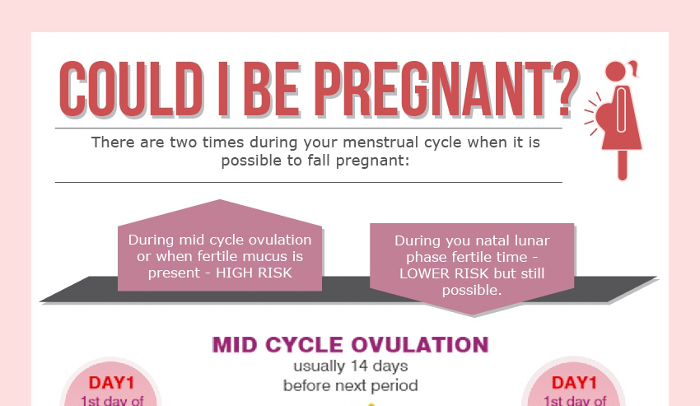
Tracking your symptoms such as increased or decreased sex drive, mood, cramps, bloating, tender breasts, body aches or changes in cervical position, help you identify patterns at different points in your cycle – including ovulation.
Where can you keep track of all this information? While you can certainly use pen and paper, there are mobile apps such as Fertility Friend and Clue specially designed for this.
Step 2: Track your ovulation to pinpoint your most fertile days
Before and during ovulation, your body experiences certain changes – some you may physically notice and track in your app, but other changes can’t be detected without the right tools. Depending on how long you’ve been trying to conceive, one or more of the following methods can be used to help identify your ovulation window:
Monitor cervical mucus changes
Before ovulation, your cervical mucus can be yellow, white or cloudy in color, and gluey or stretchy in consistency. But as you approach ovulation, you may find that your mucus has become more clear, watery and slippery.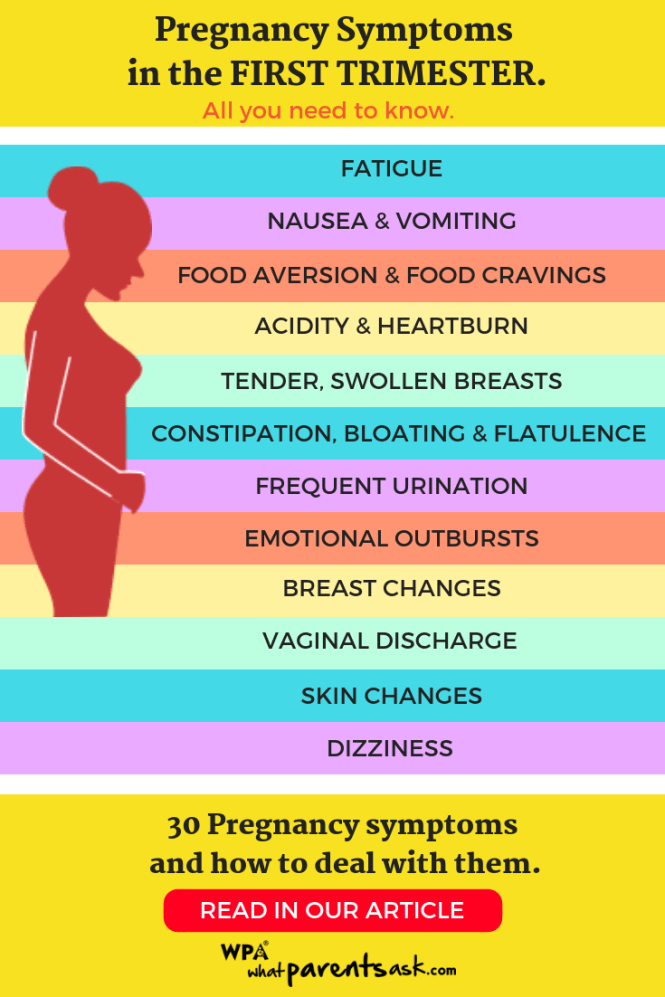 For many, the consistency can remind them of egg whites.
For many, the consistency can remind them of egg whites.
That clear, slippery mucus will stay during ovulation. This is your body’s way of helping sperm reach the uterus. The amount of cervical mucus may increase as well.
Record your basal body temperature
Your basal body temperature (BBT) is your body’s resting temperature. And tracking your BBT daily for a couple of months may help you predict when you’ll ovulate.
Just before ovulation, your BBT may decrease slightly. After ovulation, it may increase slightly – typically less than a half degree Fahrenheit – and stay elevated for a few days. If you’ve conceived, your BBT may stay elevated for the remainder of your pregnancy.
The best time to check your BBT is right after waking up in the morning – before any other activity such as getting out of bed, eating, drinking or going to the bathroom.
To ensure the most accurate results, use the same method each time and try to take your temperature at the same time each day.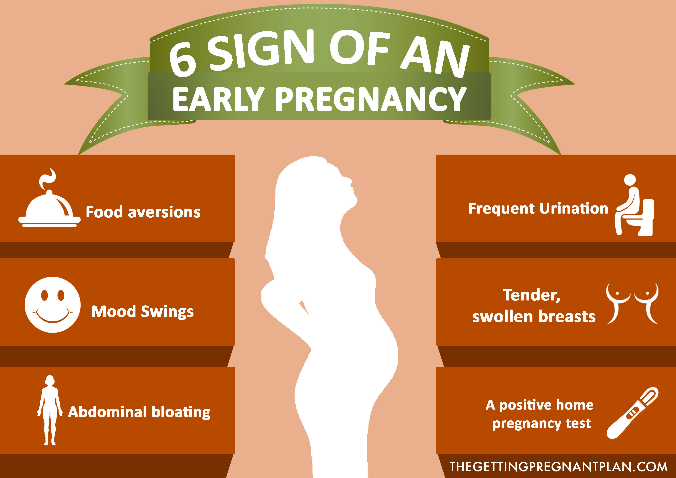 Results can also be affected by how long you sleep each night.
Results can also be affected by how long you sleep each night.
Use an ovulation testing kit
Ovulation testing kits (or ovulation predictor kits) can help detect a surge in the luteinizing hormone (LH) levels in your urine. LH is what tells your ovary to release an egg during ovulation.
An LH surge can happen anywhere between 16 and 48 hours before ovulation. So, pinpointing a surge in the hormone can help tell you when you’re about to ovulate. And knowing this can help you time sex with your partner and increase your odds of conceiving.
Some examples of ovulation testing kits include:
- Easy@Home Ovulation Test Kit
- Pregmate 50 Ovulation Test Strip Predictor Kit
- First Response Daily Digital Ovulation Test
- Clearblue Digital Ovulation Test
When do you start testing for ovulation?
All ovulation testing kits come with instructions, but typically you start testing at the beginning of your fertile window.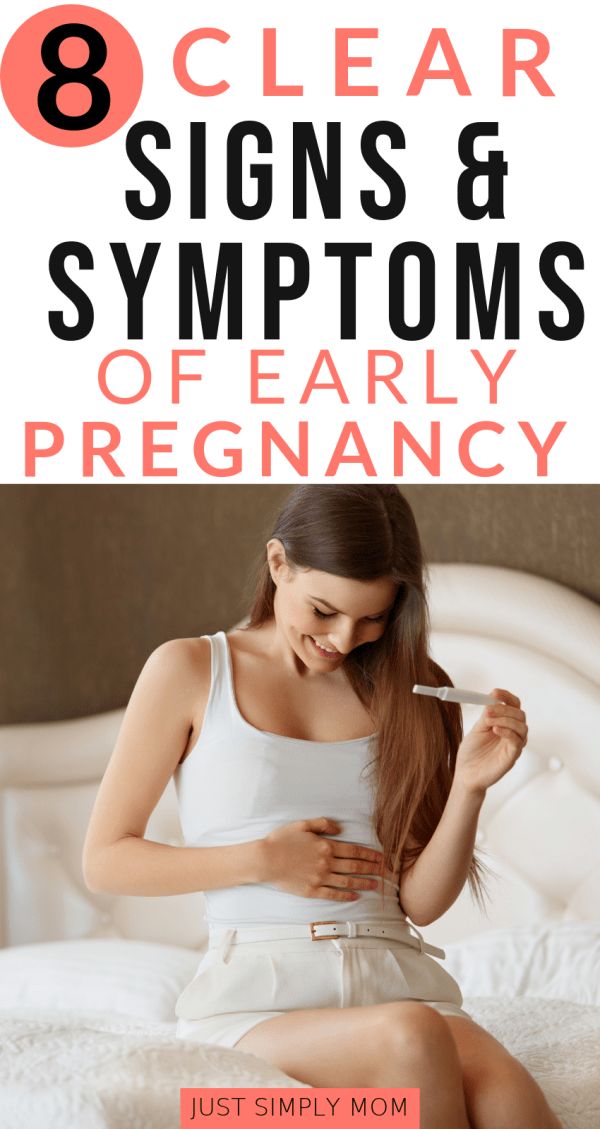 This is usually about three to five days before you expect to ovulate.
This is usually about three to five days before you expect to ovulate.
You’ll test yourself at least once a day at the same time (usually in the afternoon) until you get a positive or “peak” result. Record your test results using your journal or fertility app. Or if the testing kit you’re using offers an app, you can use that as well.
Blood tests to detect ovulation
Progesterone levels also increase during ovulation. A simple blood test can determine your progesterone levels on the day of the test. Tests are usually done on a specific day during your cycle to confirm if ovulation is occurring or has occurred.
Blood tests for progesterone and other hormone levels are often used for those experiencing signs of infertility.
Talk to your doctor about follicular monitoring
Follicular monitoring uses ultrasound scans to track the development of ovarian follicles, small sacs in the ovaries that grow and release eggs. Follicular monitoring can help with conception by identifying when an egg is about to be released, or it can help diagnose follicle-related fertility issues.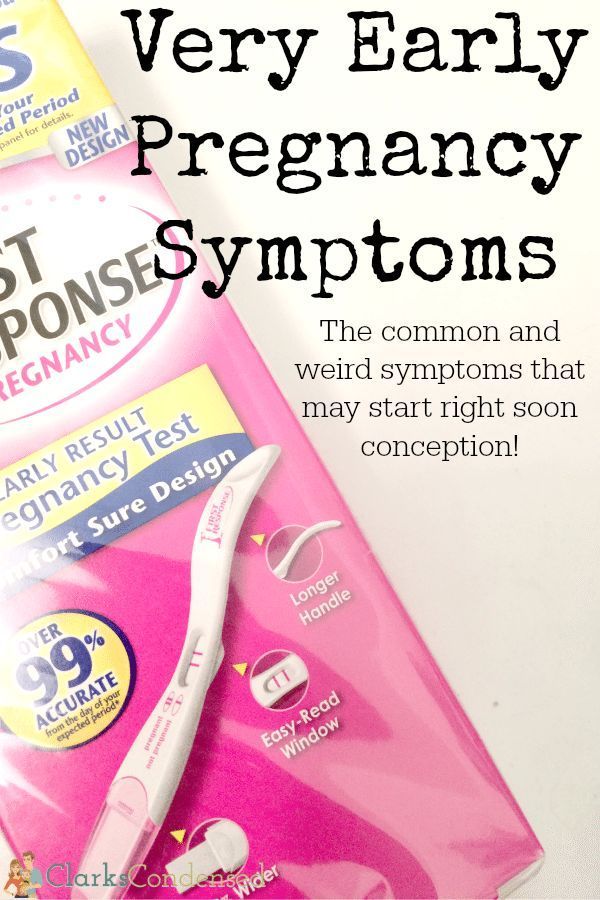
Follicular monitoring is frequently used as a part of infertility treatment, particularly for those pursuing in vitro fertilization (IVF).
Bringing it all together: Timing sex during your fertile window
Tracking your cycle and patterns helps you understand your body better and identify when your fertile window should occur. Then with the help of ovulation prediction methods, you can narrow down your ovulation window during your fertile window. The next step is putting it all together to time sex with your partner.
You’ll want to take advantage of your entire fertile window to maximize your odds of conception, but pay special attention to your ovulation window. Remember, sperm can live in your reproductive tract for up to five days.
This can mean having sex every day or every other day during your fertile window to make sure sperm is there to meet the egg when it’s released.
Got questions about fertility or ovulation? We’re here for you.
If you’re trying to get pregnant, understanding your fertility is the first step in increasing your chances of doing so./mirror-syndrome-4587193_V3-875bd2239c424c328c8c0b776b930550.png) And while there are things you can do at home, you don’t have to do it all on your own.
And while there are things you can do at home, you don’t have to do it all on your own.
If you have any questions or concerns, talk with a doctor or clinician. You can start with a primary care provider, such as a family doctor, physician assistant or nurse practitioner. If needed, they can connect you with a specialist. Or, you can make an appointment directly with an OB-GYN or midwife, both of which are experts in female reproductive health.
Signs of early pregnancy: what to pay attention to
From the moment of conception to the birth of a child, the body of a future mother is constantly rebuilding to solve one single task: to bear and give birth to a healthy baby.
The main symptom of pregnancy is the absence of menstruation. But besides this, conception is accompanied by other signs. Some women begin to feel them from the first weeks, while others do not notice any changes for several months. It is better to know in advance about the signals that the body sends. So you can understand that conception has occurred, which means that you exclude from life all the factors that can harm the child, and begin to help him develop properly: take vitamins, get enough sleep and avoid stress.
So you can understand that conception has occurred, which means that you exclude from life all the factors that can harm the child, and begin to help him develop properly: take vitamins, get enough sleep and avoid stress.
Sometimes just listening to yourself is enough to notice the early signs of pregnancy.
Signs of pregnancy
Changes begin around 8-10 days of pregnancy, when the embryo attaches to the wall of the uterus and begins to produce the hormone - human chorionic gonadotropin (HCG), and continues until the birth. The hormone affects all body systems and rebuilds their work. These changes have a number of characteristic features.
1. Breast augmentation
The chest becomes larger and more sensitive, sometimes painful sensations may appear. The areola of the nipple darkens and swells. So the mammary glands react to changes in the hormonal background and prepare for lactation.
2. Increased fatigue
There is a constant desire to sleep, lie down, rest./2759952-early-pregnancy-signs-5af5d7cafa6bcc00362097a9.png) Doing routine things takes a lot of energy. There is a loss of strength, not related to the regime of the day. Sometimes the head is spinning, and even fainting occurs. This body reacts to hormonal changes, considering them stress.
Doing routine things takes a lot of energy. There is a loss of strength, not related to the regime of the day. Sometimes the head is spinning, and even fainting occurs. This body reacts to hormonal changes, considering them stress.
3. Morning sickness
Pregnancy symptom known to us from films and books – this is how the authors like to portray a woman who is pregnant. In fact, only one in three women experience nausea and vomiting, and a sharp increase in the hormone progesterone is to blame. This phenomenon is called toxicosis, and normally it disappears by about 16-20 weeks.
4. Cramping and discharge
Sometimes, during the process of attachment of the embryo to the uterus, periodic spasms may occur. The discharge becomes more abundant, but does not change color and smell. They may appear bloody streaks, which are often confused with the onset of menstruation.
5. Changes in taste preferences
They can start early and last throughout pregnancy - this is how the body reports a lack of nutrients. Favorite foods become tasteless, but you want something that, in principle, is inedible. There is a desire to combine incongruous things like strawberries and herring, as well as to do something unusual - to gnaw on ice or bite directly from a sausage loaf.
Favorite foods become tasteless, but you want something that, in principle, is inedible. There is a desire to combine incongruous things like strawberries and herring, as well as to do something unusual - to gnaw on ice or bite directly from a sausage loaf.
6. Frequent urination
Although the volume of fluid intake does not change, the desire to go to the toilet more often than before. This is due to the growing uterus, which begins to put pressure on the bladder, changes in the functioning of the kidneys, an increase in blood volume and hormonal changes.
7. Hypersensitivity to smells
The hormone progesterone sharpens a pregnant woman's sense of smell. Because of this, preferences may change: favorite smells will become repulsive, and those that previously did not attract at all will begin to be liked.
8. Emotional instability
Due to the rapidly changing hormonal background, the nervous system also experiences great stress. Therefore, there are sharp mood swings, tearfulness, irritability, whims and despondency.
9. Abdominal discomfort
Since progesterone relaxes smooth muscles and increases blood volume, bloating, heartburn and constipation may occur. Sometimes there are pulling pains below and a feeling of fullness.
10. Changes in libido
Hormones also affect sexual desire, both increasing it and reducing it to a minimum. Such changes can continue throughout the entire period of bearing a child.
Inna Shchekina
pharmacist, head of the Stolichki pharmacy
“If you suspect that conception has occurred, an easy way to be sure is to take a pregnancy test. For example, the classic options: Femitest, Evitest, Frautest. Their work is based on the detection of human chorionic gonadotropin (hCG) in the body: if it is detected, then the test shows two strips, if not, one. Or their more modern counterpart KliaBlu - it not only displays the result on the display, but also shows the number of weeks that have passed since conception.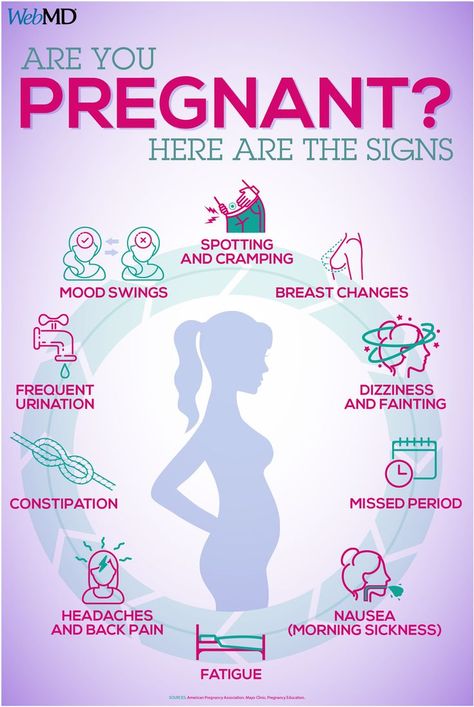
If the test result is positive, you need to see a doctor to order a blood test and ultrasound to confirm pregnancy.
Are you pregnant? Early signs of pregnancy.
Finally! Your period is delayed. If you want a baby, there is great hope that you will get pregnant this time. A pregnancy test will soon show you more. At the same time, you can observe yourself - perhaps you have already noticed any changes. Your body usually clearly shows you that fertilization has taken place. Most of the signs are associated with an increase in hormone levels.
Of course, not every sign means you are pregnant. But the more typical symptoms you notice, the more likely it is. However, in the end, only a doctor can make the final decision: "You're pregnant - congratulations!"
Share this information
Uncertain early signs of pregnancy
The first signs of pregnancy are as varied as they are vague. Often the early signs of pregnancy appear even before the missed period. These may be early pregnancy symptoms:
Often the early signs of pregnancy appear even before the missed period. These may be early pregnancy symptoms:
- Nausea and vomiting
- "Leady" tiredness and fatigue
- Frequent urination
- Increased food cravings and unusual eating habits
- Sensitive breasts and darkened nipples smell and taste
- Abdominal cramps, slight bleeding and discharge
- Growth of hair and nails
- Changes in skin condition
- Forgetfulness
- Mood swings
- Bloating or constipation
- Poor sleep
Nausea and vomiting for the first time 9007 9007 in the cinema: the heroine hurriedly runs away, she suddenly feels sick. She doesn't know she's having a baby yet, but everyone in the movie theater has already taken the hint.
In fact, nausea is not so typical. Some women feel very ill, others tend to feel a little sick.
"Lead" tiredness and fatigue
Are you as tired during the day as if you had sat up all night? The sofa is calling you at noon, and your eyes start to close as if by magic? A huge need for sleep is one of the most common signs of pregnancy.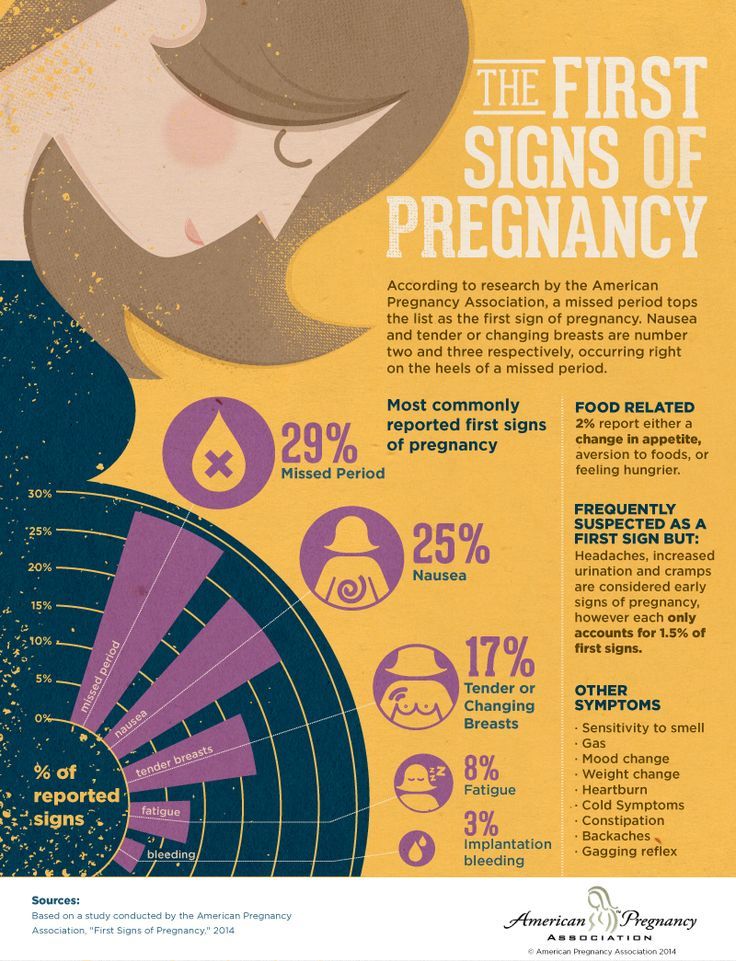 If you notice unusual tiredness or fatigue, you may be pregnant.
If you notice unusual tiredness or fatigue, you may be pregnant.
Frequent urination
You constantly have to run to the toilet, even if you drink no more than usual. This can be another early sign of pregnancy: once the embryo is implanted, the hormone human chorionic gonadotropin (hCG) is released, which makes you go to the toilet more often.
Food cravings and unusual eating habits
Is your body just screaming for chocolate or would you get up at night to buy greasy chips at the gas station? Or do you have other unusual food addictions ? Bingo! It is possible that you are pregnant. Many women report strange eating habits as early signs of pregnancy : for example, they pour hot salsa straight from the jar or, being convinced vegetarians, feel an irresistible craving to bite directly from a stick of hearty salami.
Sensitive breasts and darkened nipples
Your breasts may also show early signs of pregnancy. Pay attention to the following symptoms: the breast begins to thicken and fill up, as before menstruation. To the touch, the mammary glands are more plump and large and very sensitive to touch. Your areola often looks darker than usual . The opposite symptom - discoloration - can also be caused by a hormonal imbalance or a previous pregnancy.
Pay attention to the following symptoms: the breast begins to thicken and fill up, as before menstruation. To the touch, the mammary glands are more plump and large and very sensitive to touch. Your areola often looks darker than usual . The opposite symptom - discoloration - can also be caused by a hormonal imbalance or a previous pregnancy.
Changes in smell and taste
Every day you find that the detergent smells unbearably . Or you complain to your husband that he has been bathing in cologne lately. Are you familiar with this? Hypersensitivity to odors usually seen in early pregnancy . Some women have a strange metallic taste in their mouths . Another early sign of pregnancy can also be a sudden aversion to alcohol or tobacco.
Abdominal cramps, slight bleeding and discharge
Pulling in the abdomen, as if menstruation is about to begin. You are disappointed and think: "It didn't work out with the child again!". Or you even notice a small spot or highlights. But day after day passes, and there are still no periods. Then these symptoms may be early signs of pregnancy. These symptoms are usually harmless and are caused by the implantation of a fertilized egg in the uterus. If you want to be on the safe side, try not to strain yourself and avoid exercise. If you notice anything unusual, see your doctor.
Or you even notice a small spot or highlights. But day after day passes, and there are still no periods. Then these symptoms may be early signs of pregnancy. These symptoms are usually harmless and are caused by the implantation of a fertilized egg in the uterus. If you want to be on the safe side, try not to strain yourself and avoid exercise. If you notice anything unusual, see your doctor.
Elevated basal body temperature
You can find out if you are pregnant by regularly measuring your basal body temperature: if in the morning after waking up for eighteen days your temperature is higher than usual , then most likely you are pregnant.
When do the early signs of pregnancy appear?
It is impossible to say exactly in which week of pregnancy certain symptoms of pregnancy appear. When the first signs of pregnancy appear and whether they appear at all depends on the individual woman. However, the early symptoms of pregnancy can be roughly attributed to the following weeks.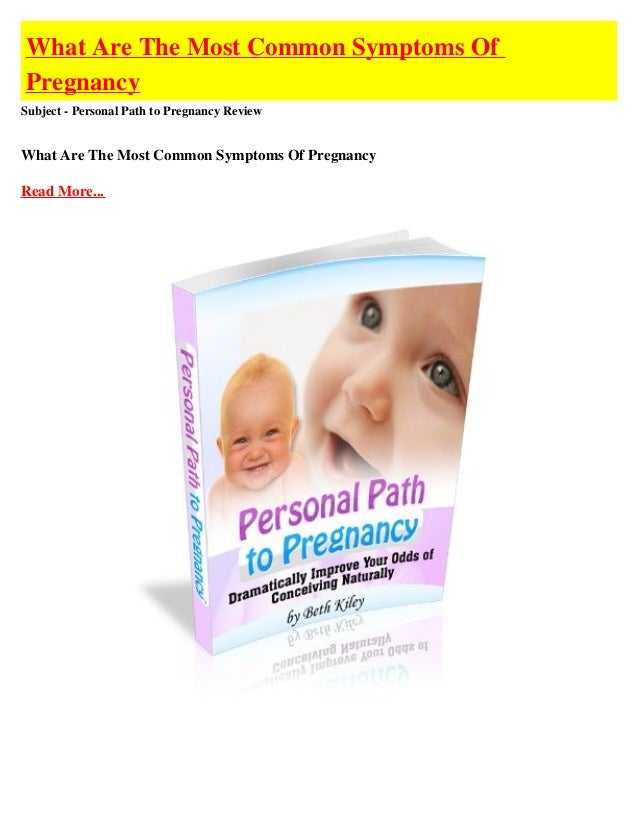
4th week: implantation pain and slight bleeding, breast tenderness.
5th and 6th week: mood swings, fatigue, hunger, nausea and vomiting
7th and 8th week: nausea, circulation problems, dizziness, low blood pressure, insomnia , frequent urination,
9th and 10th weeks: breast changes, nausea, shortness of breath
11th and 12th weeks: bloating, constipation
The three surest signs of pregnancy
There are many early symptoms of pregnancy, but the surest signs of how to understand that you are still pregnant:
1. Cessation of menstruation.
This is the surest sign of pregnancy. Sometimes stress, hormonal fluctuations or an organic disease are to blame, but it is better to take a pregnancy test.
2. You suffer from nausea.
A few days after conception, you may feel slightly unwell.